Come with us on a walking tour of Nyon...
3. rue Maupertuis/rue du Vieux Marché
The curia
|
The
Archaeology Walk
|
|
|
More
places to visit
|
|
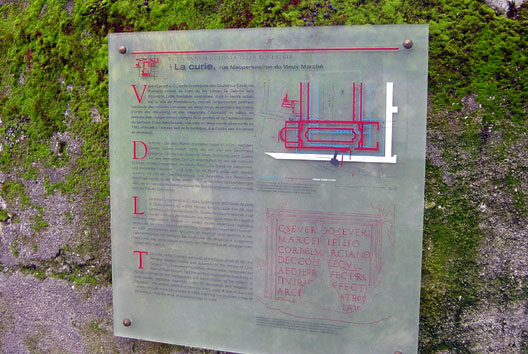 |
||
| The text in English reads: The curia - After Caesar's conquest of the Gauls about 45 BC, the Romans created Colonia Iulia Equestris on the shores of Lake Geneva. This Caesarian foundation, whose urban center was the town of Noviodunum, had the political organization customary in Roman colonies for the management and administration of the territory: a local senate, legislative assembly (order of decurions), and magistrates ("duumviri" and aediles, elected in principal every year). It was in the curia - a semicircular room (discovered in 1995) adjoining the southern annex of the basilica - that the order of decurions used to meet. | ||
| On the map, Blue: first phase of construction, Red: second phase of construction, White: Roman road network | ||
| The lower left corner of the plaque shows a picture of this stone monument, found in the Roman Museum. The inscription honors of "Quintus Severius Marcianus, decurion, aedile, and duumvir." | 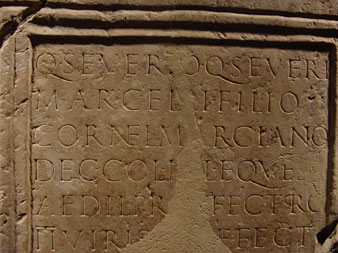 |
|
| Click here for more information about the curia in ancient Rome. | ||
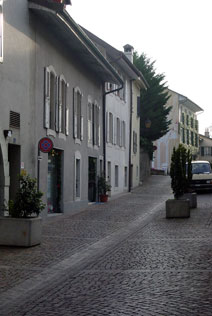 |
Standing
on the rue du Vieux Marché, near the statue of Julius Caesar, looking
west towards the place des Marroniers, and east towards the place du Château.
In 1991 and 1995, work on the rue du Vieux Marché revealed Roman
walls and floors, as well as more information about the size and shape
of the forum itself, and the buildings next to it. Below, the curia in the forum model in the Nyon Roman Museum. Click on the picture to go to the Museum's wen page about the forum. |
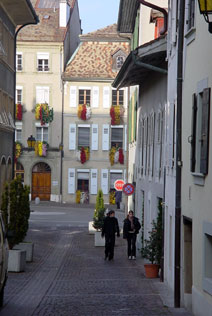 |
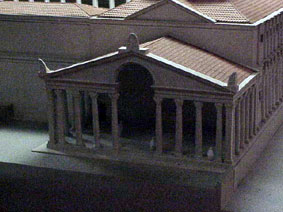 |
||
| Right: Along the rue du Vieux Marché, you will find the ruelle du Forum, pictured lower right. It is too narrow for a car to pass |
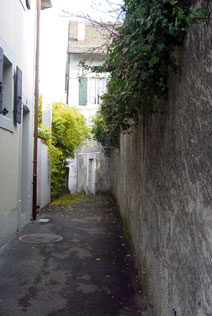 |
|
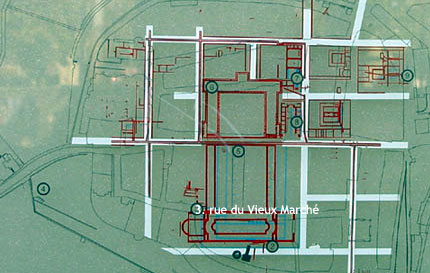 |
||
| In 2002, while working on the water, gas and electricity lines under the street (rue du Vieux Marché) a very well preserved section of Roman sewer was uncovered, with its arch still in place. Two secondary drains intersected with it. The presence of a sewer leads archaeologists to believe that a street ran above it; walls (some with their painting still in place) of houses on either side confirm this idea. | 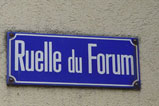 |
|
|
the
Rhone River
|
This page was updated on 24 April, 2004 by K. Epps
Unless
otherwise mentioned, all photos are by Katharine Epps.
Sauf mention contraire les photos sont de Katharine Epps
nyon@isg-online.org